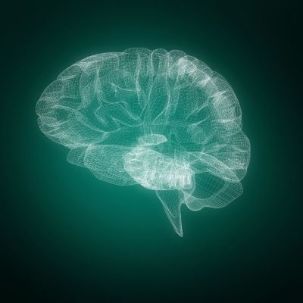Medulloblastomas are dangerous brain tumours affecting children. They are amongst the most common malignant brain tumours diagnosed in children, and, due to their rapid progression, they are difficult to treat.
International study finds causes can be hereditary
The study, carried out at the European Molecular Biology Laboratory (EMBL) in Heidelberg in conjunction with other international partners, has found that in 40% of one subgroup of medulloblastoma, the causes are hereditary. A novel genetic defect that occurs in 15% of these children plays a key role by destabilising the production of proteins. The researchers suspect that genetic predisposition to proteome instability could be a previously underestimated cause of other types of cancer. The results were published online on 1 April in the scientific journal Nature (doi: 10.1038/s41586-020-2164-5).

The paper’s lead author, Dr Sebastian Waszak, who was a postdoctoral researcher at EMBL
at the time of the study and who was appointed as NCMM group leader in February 2020, was part of the team that also included the Hopp Children’s Cancer Center Heidelberg (KiTZ), the German Cancer Consortium (DKTK), and the St. Jude Children’s Research Hospital in Memphis, USA.
The researchers hope that by characterising the molecular properties of medulloblastoma, novel treatment options that focus on the tumours’ mode of action can be considered.
Article featured on EMBL
This overview is taken from the article, ‘Understanding brain tumours in children’, which was published by EMBL: https://www.embl.org/news/science/brain-tumours-in-children/
You can read the paper in full on Nature.com:
S. Waszak, G. Robinson, et al. Germline Elongator mutations in Sonic Hedgehog medulloblastoma. Nature, April 2020. DOI: 10.1038/s41586-020-2164-5
About Dr Waszak
Dr Sebastian Waszak is head of the Computational Oncology group at NCMM. His research focuses on large patient cohorts, multi-modal data integration, and computational methods to study molecular mechanisms of rare cancers.
One specific focus of the group will be to work towards the development of precision medicine strategies for pediatric brain tumour patients. His research will further aim to identify the genetic basis of rare cancers and to develop prognostic biomarkers for clinical-decision making based on integrative analyses of patient genomes, cancer genomes, and cancer proteomes.
